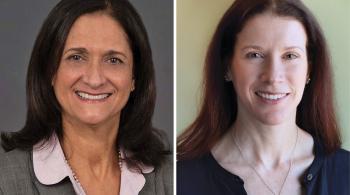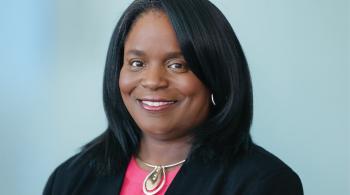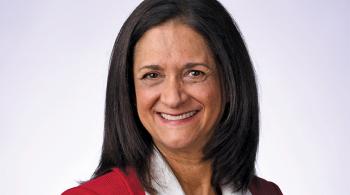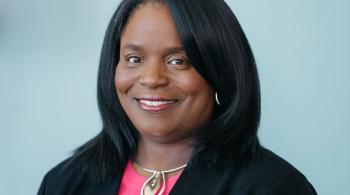By Laura Thornton
As the COVID-19 pandemic has made clear, Americans across the U.S. experience drastically unequal access to healthcare. While some communities enjoy a plethora of healthcare providers and services, others have far fewer healthcare resources, and many in those communities lack the transportation needed to easily access those resources. That inequality has resulted in a nation in which some populations—including Black, Hispanic, Native American and rural communities—suffer from poorer health, in general, than other populations.
Kennedy Krieger Institute serves patients and families from all segments of society, and takes special care to ensure that a patient’s race, ethnicity, cultural background and socioeconomic status are taken into consideration when developing a treatment plan—that’s the only way to ensure equitable care for all.
'A Foundation of Respect'
For the Therapeutic Nursery run by PACT, an affiliate of Kennedy Krieger that serves children and families experiencing homelessness, “we meet the family where they are,” explains Kimberly Cosgrove, the Therapeutic Nursery’s director. “We support them in what they need in that moment, and make sure that we’re always bringing kindness and compassion into our work.”
“We work from a foundation of respect, hope and curiosity, rather than judgment,” adds Sharon Holloway, who directs World of Care, PACT’s medical child care program. “We need to be curious about the things that have happened to the families turning to us for care, and let that inform how we care for them.”

Cosgrove recalls a family enrolled in the Therapeutic Nursery, and who lived in the family shelter in which the Therapeutic Nursery is located. “They had 11 children, and while there’s often judgment around the number of children a family has, what we saw was a family that loved their children so much,” says Cosgrove, who remembers seeing the children’s father sitting in the shelter’s dining room surrounded by his children.
“They were all just laughing and enjoying themselves. Even though they were temporarily in a shelter, the love that they had, I knew, would carry through their lives,” she adds. “We have to remember that everyone staying in the shelter has the same desire as we all do to support our children as they grow and learn.”
Care Specific to Each Patient and Family
“It’s very important to be culturally aware of the population you serve,” says Dr. Carmen Lopez-Arvizu, medical director of the Institute’s Psychiatric Mental Health Program. “It’s not just about the symptoms. It’s about valuing cultural differences. We make the effort to really get to know our patients. Sometimes the questions we may need to ask may be awkward, but the rapport is necessary to find a common ground for treatment.”
It’s very important to be culturally aware of the population you serve. It’s not just about the symptoms. It’s about valuing cultural differences.”
– Dr. Carmen Lopez-Arvizu
“For me and my work, no one exists apart from a context and a story. We are all people within a context,” says Dr. Anjelica E. Jackson, a clinical psychologist for the Institute’s Department of Family and Community Interventions. “Many of my clients are people of color, who historically have been marginalized. They’re not just patients with diagnoses. There are environmental, societal and historical factors that impact their ability to function and thrive.”
If a patient is dealing with depression, “I can’t just treat that when they’re also dealing with police brutality and insufficient access to care, and that all goes into the context of who they are, and what it means for me to be a Black therapist for them,” she adds. “Even though we are of the same race, there are so many things that can impact who we are. If I can’t take all of that into account for that person, then I can’t ‘see’ that person, and our clients deserve that.”
Ensuring Each Patient's Needs Are Met
Sometimes, meeting patients where they are is as simple as asking in advance what they’ll need to be fully comfortable during their medical appointment.

For patients or family members who are d/Deaf* or hard of hearing, that means asking in advance what mode of communication they prefer—American Sign Language (ASL) interpretation or live captioning on an iPad, for example, explains Dr. Jennifer Reesman, supervising neuropsychologist for the Institute’s Deafness-Related Evaluations and More (DREAM) Clinic, which has several ASL-fluent clinicians on staff.
And for a transgender patient, one of the first steps toward providing equitable care means finding out what first name that patient uses—which could be different from their legal name—and what pronouns they use to refer to themselves.
“Individuals in the LGBTQ+ community represent about 10 to 15 percent of the population,” says clinical psychologist Dr. Kathryn Van Eck. “They often don’t feel welcome in healthcare settings. Affirming their sexual orientation and gender identity is crucial for developing a strong patient-provider relationship.”
Not long ago, Dr. Van Eck helped a group of rehabilitation therapists at Kennedy Krieger understand the importance of using a patient’s preferred pronouns.

“They really wanted to learn whatever was necessary to support their patient by being gender-affirming in their care. It made a big difference for the patient, and helped the patient connect with the staff,” she says. “I’ve also witnessed the critical role that using a patient’s pronouns can have in the patient’s parents’ acceptance of their child’s identity. When we model acceptance, using the right pronouns and apologizing when we get it wrong, it’s a big deal for parents who are also struggling with that process.”
When Dr. Van Eck gives presentations to Kennedy Krieger teams and departments on providing gender-affirming healthcare, she always stresses the importance of cultural humility.
“Having an openness to learning and seeking new information and being humble can be uncomfortable, but it’s necessary to provide the best care possible to our patients,” she says. “At Kennedy Krieger, everyone always aligns themselves with the principles of the Institute, providing the best care possible, and connecting with each patient and meeting their needs.”
*Kennedy Krieger Institute recognizes that the word “deaf” can refer to both a condition and a culture. Kennedy Krieger spells the word as “d/Deaf” to be inclusive of both hearing status and cultural identity.















